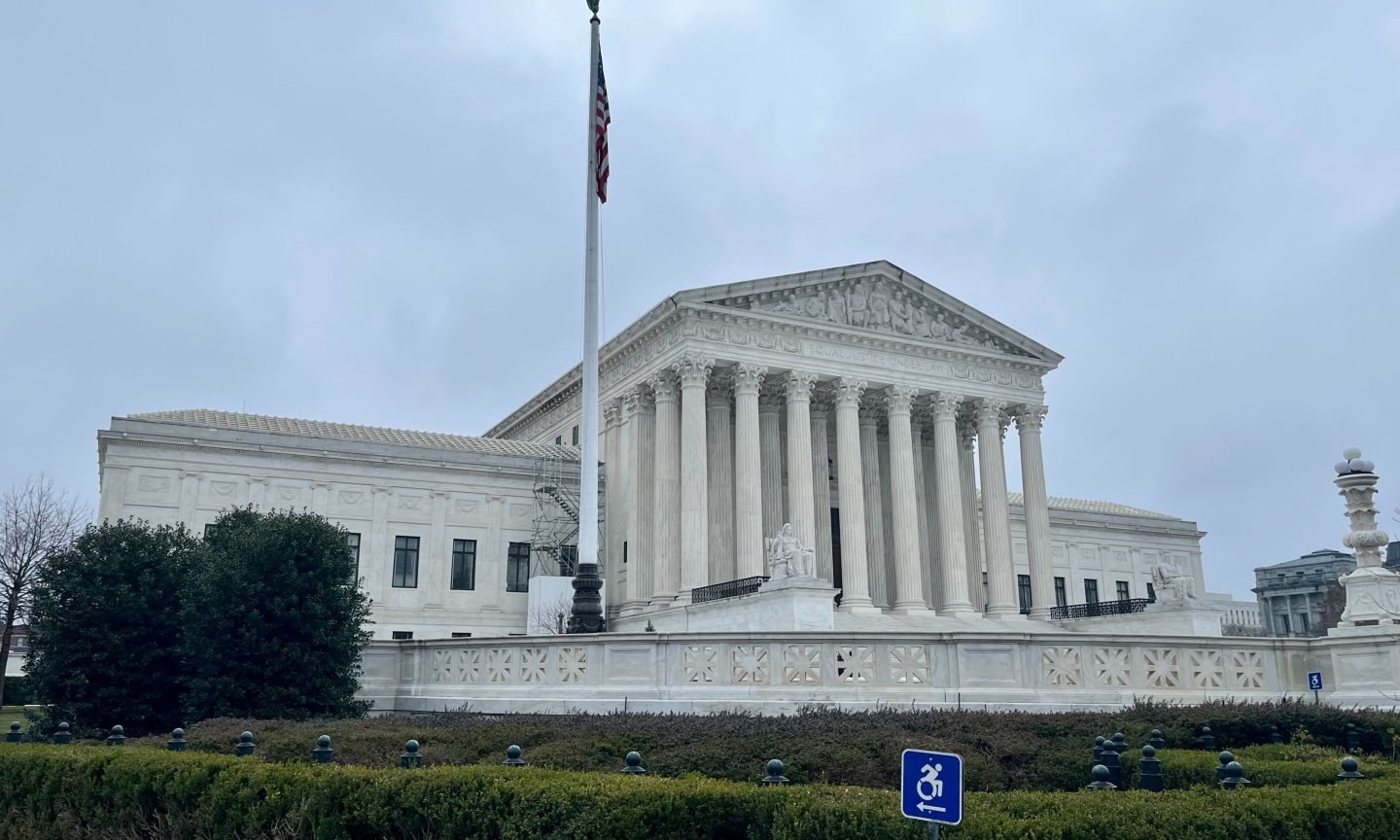Apache is functioning normally

The Possible Card — issued by Coastal Community Bank, in partnership with Possible Finance — began slowly rolling out to the public in April 2023. As of this writing, the card is available in most states, with the exception of Hawaii, Nevada and Maryland.
While still in its early stages, the Possible Card won’t help propel your credit journey forward because it currently doesn’t report payments to major credit bureaus like TransUnion, Equifax and Experian. Even once it begins reporting payments, it still won’t be your most cost-effective option. Possible Finance touts “peace of mind” that you won’t be charged interest, but there’s a big caveat: Instead of an annual percentage rate, the card has a monthly fee.
Monthly fees on credit cards are a hot trend now, especially among young financial technology companies (fintechs). But depending on the balance you’re carrying, that fee can be more expensive than interest charges you’d find on a traditional credit card.
The Possible Card does offer predictability in terms of your monthly payment, and it also allows you to bypass a credit check and security deposit. But unlike a security deposit, which is refundable, those monthly fees won’t be. Plenty of other credit cards can jump-start your credit-building goals at a lower cost.
Here’s what you need to know about the Possible Card.
🤓Nerdy Tip
While any credit card’s rewards, benefits and fee structure can be adjusted at any time, new cards from startup financial technology companies are particularly prone to significant changes as they find their place in the market. Keep that in mind as you research your credit card options.
1. The monthly fee adds up
The monthly fee to hold the Possible Card is either:
-
$8 per month ($96 annually) for a $400 credit limit, or
-
$16 per month ($192 annually) for an $800 credit limit.
That makes the Possible Card more expensive than similar newcomers in its class. For example:
-
The Tomo Credit Card (currently waitlisted as of September 2023) charges $2.99 per month. There’s no credit check, upfront deposit or APR.
-
The Pesto Mastercard costs $3.33 a month, and while a deposit is required, it can be an asset instead of cash.
In fact, for no monthly or annual fee at all, you could consider cards like the Chime Credit Builder Visa® Credit Card, which lets you set your own security deposit, or the Grow Credit Mastercard, which has a free membership tier. Neither card carries an APR, neither conducts a credit check, and all of these aforementioned cards report your payments to credit bureaus.
Or, you could fare even better with a traditional secured credit card. Yes, you’ll have to come up with a one-time security deposit upfront, but for many of the best secured credit cards, you need a minimum of just $200, or nearly what you’d pay — every year and nonrefundable — for the Possible Card’s higher-limit version. Plus, many traditional secured cards come with upgrade paths to better products. The Possible Card does not, nor do many newer fintech-backed cards, for that matter.
The Discover it® Secured Credit Card is a good example of the kind of features to look for in a starter card. It requires a minimum security deposit of $200, but it has a $0 annual fee and earns rewards. It reports payments to all three major credit bureaus, and Discover begins automatic reviews starting at seven months to see whether you qualify to upgrade to an unsecured card and get your deposit back.
🤓Nerdy Tip
If you’re approved for the Possible Card, you can immediately start using the virtual card if you enroll in autopay. Otherwise, you’ll have to wait for the physical card to arrive in the mail.
2. There’s no credit check
The Possible Card doesn’t require a credit check and instead relies on a cash-flow-based underwriting algorithm to determine whether you qualify. But that underwriting process requires you to link an eligible account through a third party called Plaid.
This practice of skipping a credit check in exchange for linking a bank account has become a fairly common practice for certain credit cards, especially newcomers backed by fintechs. But there are better credit cards that don’t require a credit check.
The previously mentioned Chime Credit Builder Visa® Credit Card, for instance, requires opening a Chime Spending Account, but it doesn’t charge any fees or interest. It’s a secured credit card with a flexible deposit. The amount of money that you move from the spending account to the Credit Builder secured account is the amount you have available to spend.
3. No APR or late fees apply, but don’t be fooled
Some credit cards that charge monthly fees instead of interest market the idea of being “predictable,” for budgeting purposes. Possible Finance claims on its website that the monthly fee is cheaper than the charges on a traditional credit card, but that’s misleading. For most credit cards, interest charges don’t apply at all if you pay off the balance in full every month.
With the Possible Card, you’ll owe the monthly fee whether you carry a balance or not.
Depending on the size of your balance, that monthly fee could cost more than the interest charged on a traditional credit card, especially in cases where the card’s credit limit is relatively low. You can use the sliding scales below to illustrate this:
For context, the average APR for credit cards assessed interest in May 2023 was 22.16%, according to Federal Reserve data. If you have less-than-ideal credit, that percentage may be higher.
Trying to get approved for a card?
Create a NerdWallet account for insight on your credit score and personalized recommendations for the right card for you.
4. You can carry a balance over a short term
Unlike some credit cards in its class, the Possible Card allows you to revolve a balance, up to a limit. The card’s Pay Over Time option lets you pay off the balance over four installments if you schedule automatic payments and enroll in the app. There’s no additional charge to use this option as long as the account has a balance of at least $50 and no pending payments.
The downside of the Pay Over Time feature is that the card will be locked and cannot be used for new purchases or automatic recurring expenses until the installment loan is paid off. But the benefit is that this guardrail can prevent you from taking on more debt than you can handle.
If you’re using your Possible Card to make automatic recurring payments for streaming services or other expenses, make sure to change your payment method when you opt in to the Pay Over Time feature.
5. It doesn’t report payments to credit bureaus
The Possible Card is still in its infancy and does not report payments to the credit bureaus as of this writing. The company shared in an email that it has plans to start reporting payments to one bureau in the fourth quarter of 2023.
When your goal is to build credit with a credit card, reporting payments to the three major credit bureaus is a must-have feature. Ideally, you want your credit history to be recorded by all of them so that future lenders can access that information easily.
See more from Chime
Chime says the following:
-
The Chime Credit Builder Visa® Card is issued by Stride Bank, N.A., Member FDIC, pursuant to a license from Visa U.S.A. Inc. and may be used everywhere Visa credit cards are accepted.
-
To apply for Credit Builder, you must have received a single qualifying direct deposit of $200 or more to your Checking Account. The qualifying direct deposit must be from your employer, payroll provider, gig economy payer, or benefits payer by Automated Clearing House (ACH) deposit OR Original Credit Transaction (OCT). Bank ACH transfers, Pay Anyone transfers, verification or trial deposits from financial institutions, peer to peer transfers from services such as PayPal, Cash App, or Venmo, mobile check deposits, cash loads or deposits, one-time direct deposits, such as tax refunds and other similar transactions, and any deposit to which Chime deems to not be a qualifying direct deposit are not qualifying direct deposits.
-
On-time payment history may have a positive impact on your credit score. Late payment may negatively impact your credit score. Chime will report your activities to Transunion®, Experian®, and Equifax®. Impact on your credit may vary, as Credit scores are independently determined by credit bureaus based on a number of factors including the financial decisions you make with other financial services organizations.
-
Money added to Credit Builder will be held in a secured account as collateral for your Credit Builder Visa card, which means you can spend up to this amount on your card. This is money you can use to pay off your charges at the end of every month.
Source: nerdwallet.com







